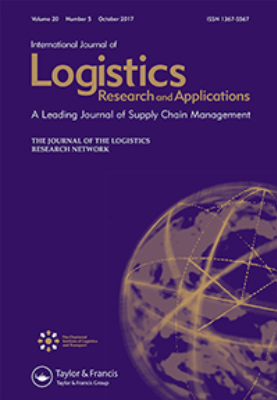在循环商业模式中推动协作的影响因素
IF 4.5
3区 管理学
Q1 MANAGEMENT
International Journal of Logistics Research and Applications
Pub Date : 2023-09-16
DOI:10.1080/13675567.2023.2254258
引用次数: 0
摘要
从线性经济到循环经济的转变被认为是迈向绿色经济的革命性一步。确保成功转型需要彻底改变我们目前应用循环商业模式的孤立方法。这些模式旨在减轻对环境的负面影响,同时促进增长和繁荣。本研究主要关注三个模型(“循环供应”、“资源回收”和“产品寿命延长”)。它旨在探索它们在向循环生态系统过渡过程中的协作方面和影响因素。通过运用社会资本理论的理论视角,以其结合、连接和桥接的特征,研究结果揭示了当前各个行业部门循环实践的快照。此外,基于以下七个类别确定了具体循环商业模式的影响因素:(1)意识/社会/社区;(2)循环型工作环境;(3)圆形材料;(4)客户和市场需求;(5)商业和政治标准,(6)感知和个人标准/专业知识,以及(7)沟通技巧。最后,这些发现被用于为开始循环之旅的组织提供实用的见解,这些类别与CBMs一起被映射。本文章由计算机程序翻译,如有差异,请以英文原文为准。
Influencing factors driving collaboration in circular business models
The transition from a linear to a Circular Economy is considered a revolutionary step toward a greener economy. Ensuring a successful transition requires radical changes in our current siloed approach to applying circular business models. Such models aim to mitigate negative environmental impact whilst fostering growth and prosperity. This research focuses on three models (‘Circular Supply’, ‘Resource Recovery’ and ‘Product-Life-Extension’). It aims to explore their collaborative aspects and influencing factors in the transition process towards circular ecosystems. By applying the theoretical lens of Social Capital Theory, with its characteristics of bonding, linking and bridging, findings revealed a snapshot of current circular practices in various industry sectors. In addition, the influencing factors for the specific Circular Business Models were identified based on the seven categories of: (1) Awareness/Social/Community; (2) Circular Workplace Environment; (3) Circular Material; (4) Customer and Market demand; and (5) Business and political standards, (6) Perception and individual standards/expertise, and (7) Communication skills. Finally, the findings were used to offer practical insights for organizations beginning their circular journey, with the categories being mapped alongside the CBMs.
求助全文
通过发布文献求助,成功后即可免费获取论文全文。
去求助
来源期刊
CiteScore
13.70
自引率
9.10%
发文量
71
期刊介绍:
International Journal of Logistics: Research & Applications publishes original and challenging work that has a clear applicability to the business world. As a result the journal concentrates on papers of an academic journal standard but aimed at the practitioner as much as the academic. High quality contributions are therefore welcomed from both academics and professionals working in the field of logistics and supply chain management. Papers should further our understanding of logistics and supply chain management and make a significant original contribution to knowledge. In this context the term "logistics" is taken in its broadest context as "the management of processes, flow of materials and associated information along the entire supply chain.

 求助内容:
求助内容: 应助结果提醒方式:
应助结果提醒方式:


